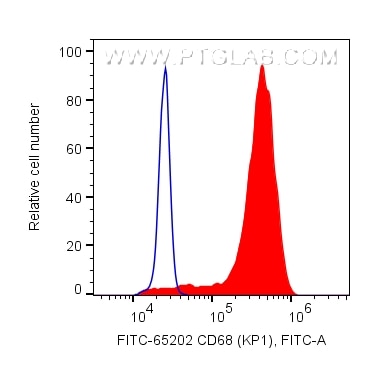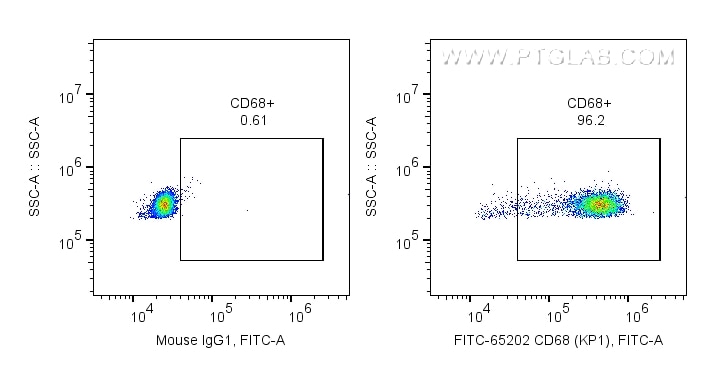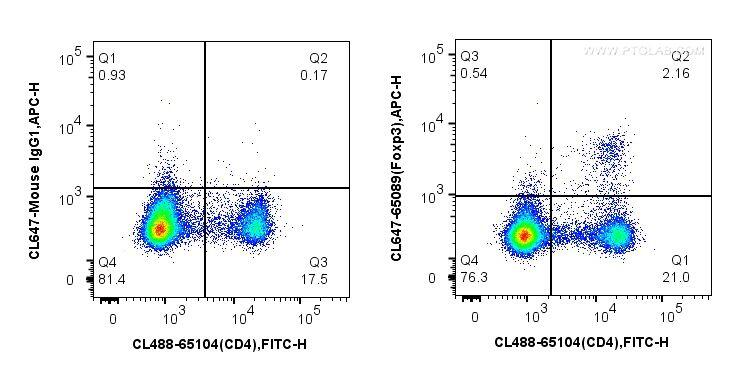Anticorps Monoclonal anti-CD68
CD68 Monoclonal Antibody for FC (Intra)
Hôte / Isotype
Mouse / IgG1, kappa
Réactivité testée
Humain
Applications
FC (Intra)
Conjugaison
FITC Plus Fluorescent Dye
CloneNo.
KP1
N° de cat : FITC-65202
Synonymes
Galerie de données de validation
Applications testées
| Résultats positifs en cytométrie | CMSP humaines |
Dilution recommandée
| Application | Dilution |
|---|---|
| This reagent has been pre-titrated and tested for flow cytometric analysis. The suggested use of this reagent is 5 μl per 10^6 cells in a 100 µl suspension or 5 μl per 100 µl of whole blood. | |
| Sample-dependent, check data in validation data gallery | |
Informations sur le produit
FITC-65202 cible CD68 dans les applications de FC (Intra) et montre une réactivité avec des échantillons Humain
| Réactivité | Humain |
| Hôte / Isotype | Mouse / IgG1, kappa |
| Clonalité | Monoclonal |
| Type | Anticorps |
| Immunogène | Lysosomal fraction of human alveolar macrophages |
| Nom complet | CD68 molecule |
| Masse moléculaire calculée | 37 kDa |
| Numéro d’acquisition GenBank | BC015557 |
| Symbole du gène | CD68 |
| Identification du gène (NCBI) | 968 |
| Conjugaison | FITC Plus Fluorescent Dye |
| Excitation/Emission maxima wavelengths | 495 nm / 524 nm |
| Forme | Liquide |
| Méthode de purification | Purification par protéine G |
| Tampon de stockage | PBS with 0.09% sodium azide and 0.5% BSA. |
| Conditions de stockage | Store at 2-8°C. Avoid exposure to light. Stable for one year after shipment. |
Informations générales
CD68 is a type I transmembrane glycoprotein that is highly expressed by human monocytes and tissue macrophages. It belongs to the lysosomal/endosomal-associated membrane glycoprotein (LAMP) family and primarily localizes to lysosomes and endosomes with a smaller fraction circulating to the cell surface. CD68 is also a member of the scavenger receptor family. It may play a role in phagocytic activities of tissue macrophages.
Protocole
| Product Specific Protocols | |
|---|---|
| FC protocol for FITC Plus CD68 antibody FITC-65202 | Download protocol |
| Standard Protocols | |
|---|---|
| Click here to view our Standard Protocols |




